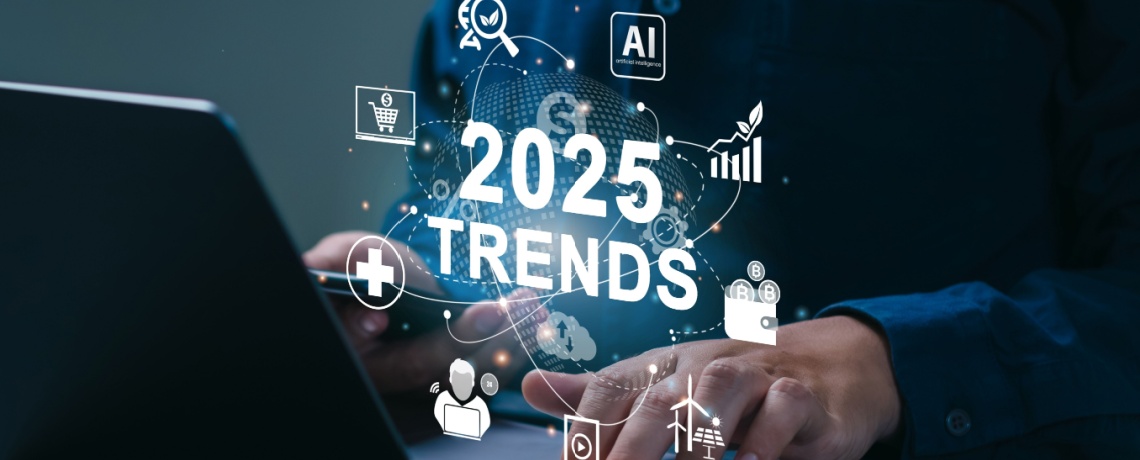
- Author: Kate Jones
- Posted: December 5, 2024
Cloud ERP Advancements > Key Trends for CFOs in 2025!
Companies looking to bring in the new year with a smooth transition to cloud need access to enterprise resource planning (ERP) tools that offer outstanding value. ERPs are the digital heart of organisations and the key to business efficiency and profitability.
CFO Magazine A/NZ’s Kate Jones had to the opportunity to sit down with Australian technology expert and ERP thought leader, Derek Excell, Head of DXC Technology’s SAP S/4 Public Cloud ERP ANZ, to discuss the most important ERP advancements and trends for CFOs to look out for in 2025.
AI driving new ERP improvements
One of the main differences to expect in new ERP tools is the introduction of AI. Integration across the entire enterprise ecosystem will be game-changer, said Excell.
“Functionally, ERP systems will prioritise intelligent automation, driven by AI and machine learning, making predictive insights and real-time decision-making more accessible,” he said.
“On the integration front, cloud ERPs will offer seamless data-sharing with other enterprise tools like CRM, HR, and supply chain, simplifying workflows across departments via AI.”
ERP systems touch every component of a business – finance, advanced finance, professional services, project management, supply chain, wholesale distribution, manufacturing and advanced manufacturing.
By adding in the capabilities of AI, ERP can transform a lot of information traditionally delivered from reports or dashboards into graphic interfaces fed by real-time data.
“This data can be interrogated directly into your own device or directly to you as a decision maker depending on where you sit in the frame of the organisational structure in the business,” Excell explained.
Beyond the technology, think about your team and how best to prepare them for this transition period. There will be early adopters and at the other end of the spectrum, resistors.
Try to understand the issues they are dealing with and empower them by listening to their concerns. This is key to bringing them along the journey of change.

Transition challenges
CFOs looking to make the leap from on-premise or complex ERP set-ups face some challenges including the journey to clean core, data migration, change management, and ensuring security compliance. But all of these are surmountable, said Excell.
“The two most significant hurdles are people empowerment and managing the tech-debt,”
“Regarding your people, ensuring you have the right team and OCM capabilities are critical to form the cultural change that’s required to take on a transformation to cloud.
“While strategising the priorities of legacy or tech-debt applications and data that will be selected for the initial project transformation and then aligning this data with the modern cloud architectures.
“To overcome this, CFOs should prioritise planning data migration phases, seek expertise in data mapping and the correct use of digital tools, and involve end-users early to ease the transition.”
Critical evaluation factors when selecting an ERP
“When selecting an ERP, CFOs should prioritise scalability, integration capabilities and vendor support services,”
“It’s essential to choose a system that can evolve with the business, especially as regulatory, data, and integration requirements continue to grow.
“CFOs should also consider the total cost of ownership, including implementation, training, and long-term maintenance, and prioritise a vendor known for customer service and post-implementation support.”
Every company needs to tailor their own ERP solutions, but it’s wise to check in with your network and find out what is working for professionals across similar organisations. Ask about the pros and the cons of their ERP systems, how long it took to integrate and what the ongoing maintenance is like.
Excell pointed to SAP networking events and user group forums.
“So we’ve had a number of great conversations from a DXC perspective where we’ve sponsored some of these events and really seen our customers come together with a learning hat on,” he said.
What to expect from ERP support
The cloud ERP vendor landscaping is evolving, and this means organisations can expect quality customer service, ongoing support, and innovation support.
“The cloud ERP vendor landscape is moving towards a service-oriented model, with more vendors emphasizing customer-centricity, continuous updates and tailored support services,” Excell said.
“CFOs can expect vendors to offer proactive support, focusing on system optimization and cybersecurity as standard. Additionally, ERP vendors will likely enhance their AI and analytics capabilities, allowing CFOs to benefit from ongoing innovation that continuously improves ERP efficiency and insights.”
AI transforming ERP
ERP systems already define how businesses innovate, scale and compete in a data-first world. The integration of AI brings a paradigm shift with the enhancement of user experiences and sustainability initiatives within ERP platforms.
Organisations really need to embrace AI advancements, not just as operational upgrades, but as essential enablers for future-ready strategy.
AI is now going to be embedded in part of the entire platform and it’s key to understand how that works collectively rather than just a standalone environment, Excell advised.
“By 2026, CFOs will likely prioritize AI for financial forecasting, fraud detection and enhanced decision support,”
“AI in cloud ERP can identify anomalies in financial transactions fast by flagging potential fraud early. AI-driven ERPs will also support CFOs in expense categorisation, cash flow analysis and predictive budgeting, with insights guiding more data-backed decisions. DXC technology has created many AI projects aligning to these models for its customers.”
ERP future designs
AI and automation are set to supercharge so many ERP functions and this will bring so many future benefits, said Excell.
“Beyond 2025, ERP systems will move towards hyper-automation, with AI managing routine financial tasks autonomously and reducing CFO intervention to strategic oversight,”
“Expect ERPs to increasingly leverage IoT and blockchain, allowing companies to monitor and audit supply chains in real-time, enabling a new level of transparency and efficiency.
“You could end up with self-learning ERPs – so an ERP could actually turn itself on, run your business for you. You’ll get up and receive a message saying everything’s running as per usual.
“Just imagine an ERP system that can adjust the supply chains in real time based on global economic shifts, or one that dynamically allocates budgets based on AI driven forecasts.”








